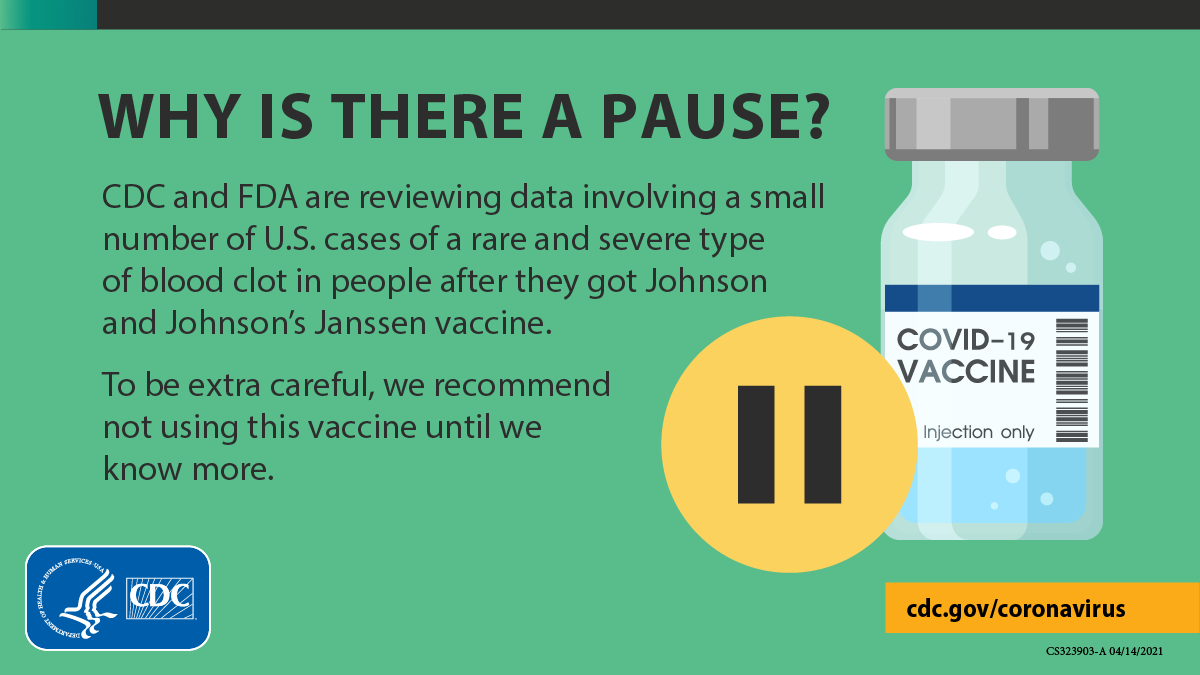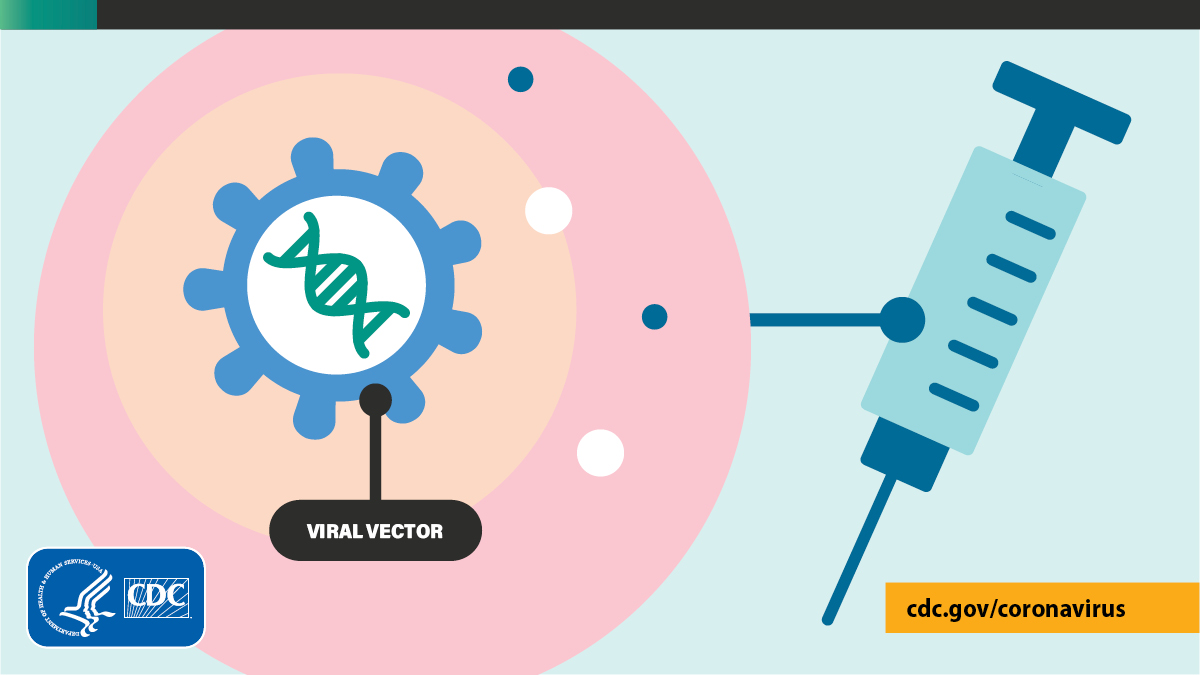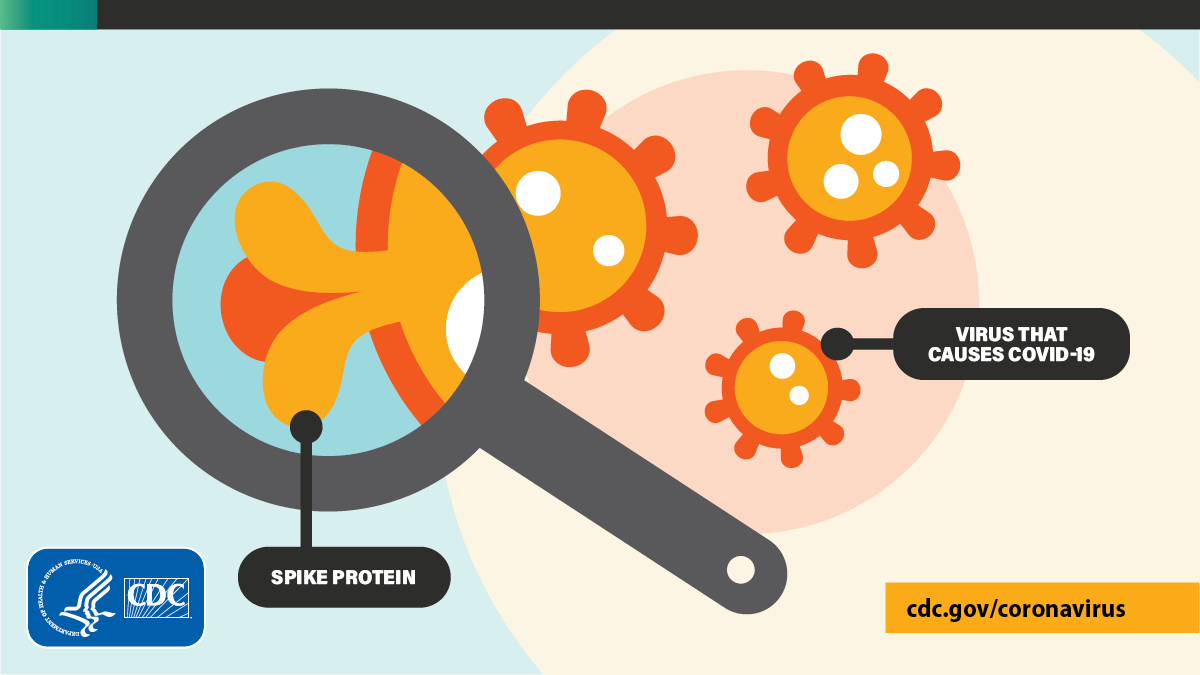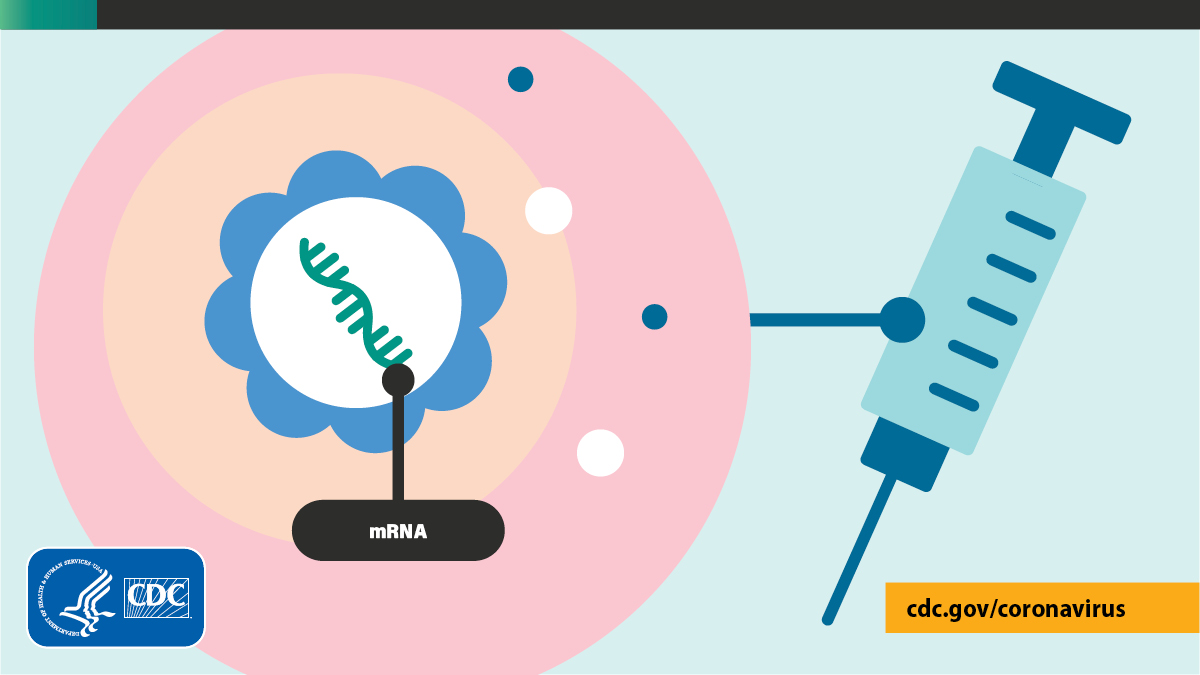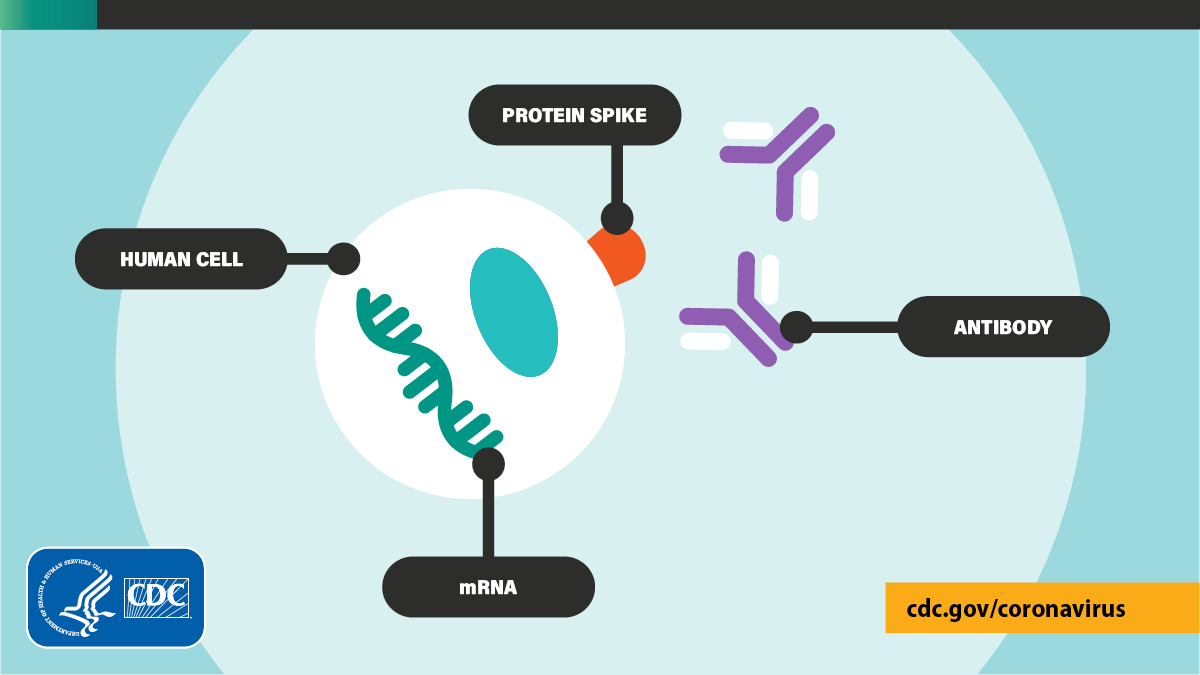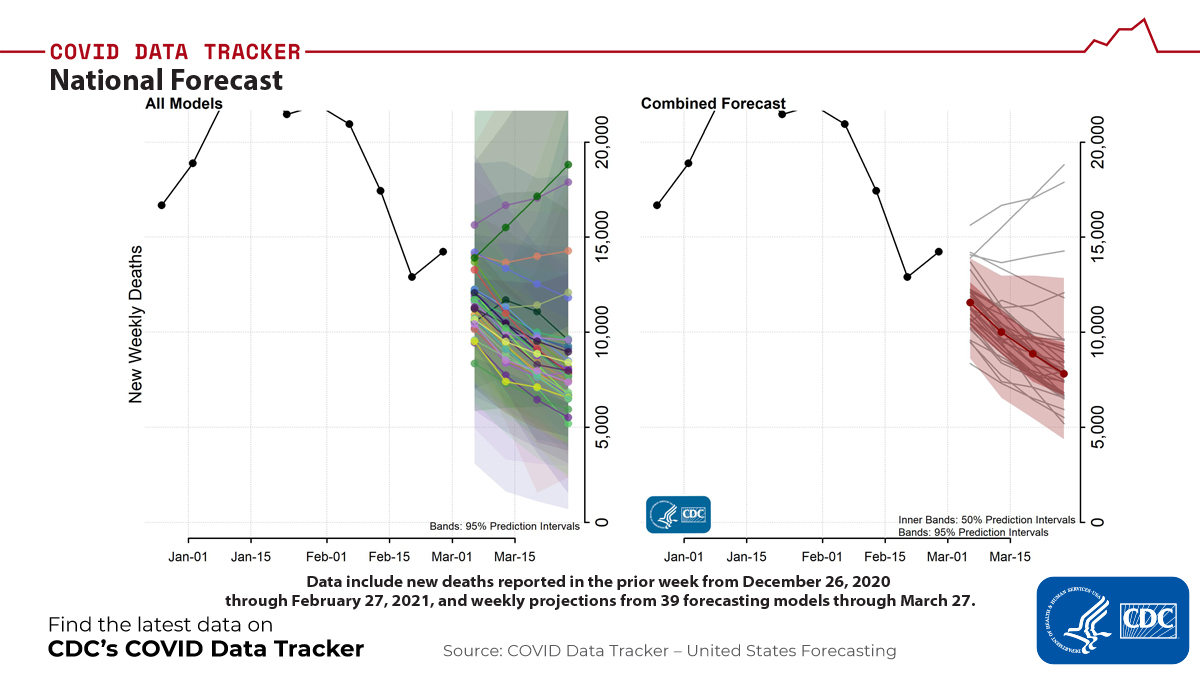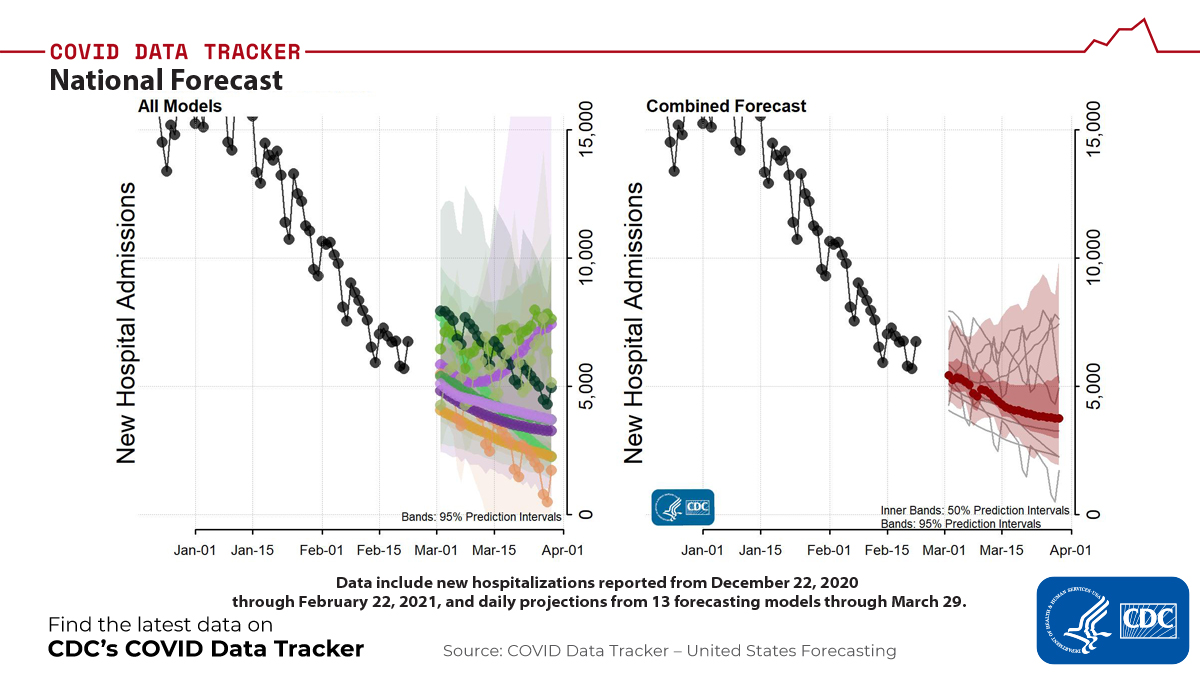
There’s a lot of information and misinformation about #COVID19 vaccines out there. Let’s bust some myths and learn some facts about COVID-19 vaccines. 
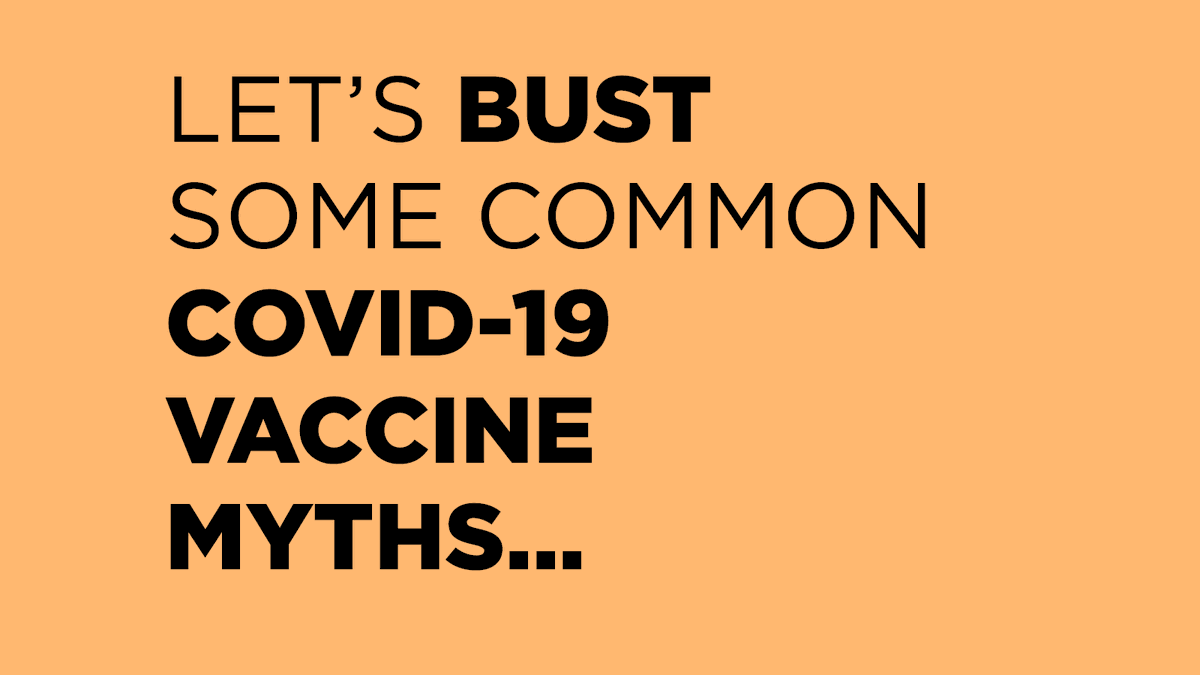
FACT: VAERS is used to monitor the safety of #COVID19 vaccines, but most health problems reported on VAERS soon after vaccination are not actually caused by the vaccine.
More on VAERS: bit.ly/3gFcDhq.
More on VAERS: bit.ly/3gFcDhq.

FACT: #COVID19 vaccines don't change or interact with your DNA in any way. These vaccines deliver instructions to teach your body to build protection against COVID-19, but the material never interacts with your DNA.
More: bit.ly/3nPvZmq.
More: bit.ly/3nPvZmq.

FACT: None of the vaccines authorized or approved for use in the United States contain live virus, so you cannot shed or release any parts of the virus that causes #COVID19 after vaccination.
More: bit.ly/3nPvZmq.
More: bit.ly/3nPvZmq.

FACT: Being near someone who received a #COVID19 vaccine does not affect your menstrual cycle. Other factors like stress, changes in schedule or diet, or problems with sleep can affect your menstrual cycle.
More: bit.ly/3hQ9yv9.
More: bit.ly/3hQ9yv9.
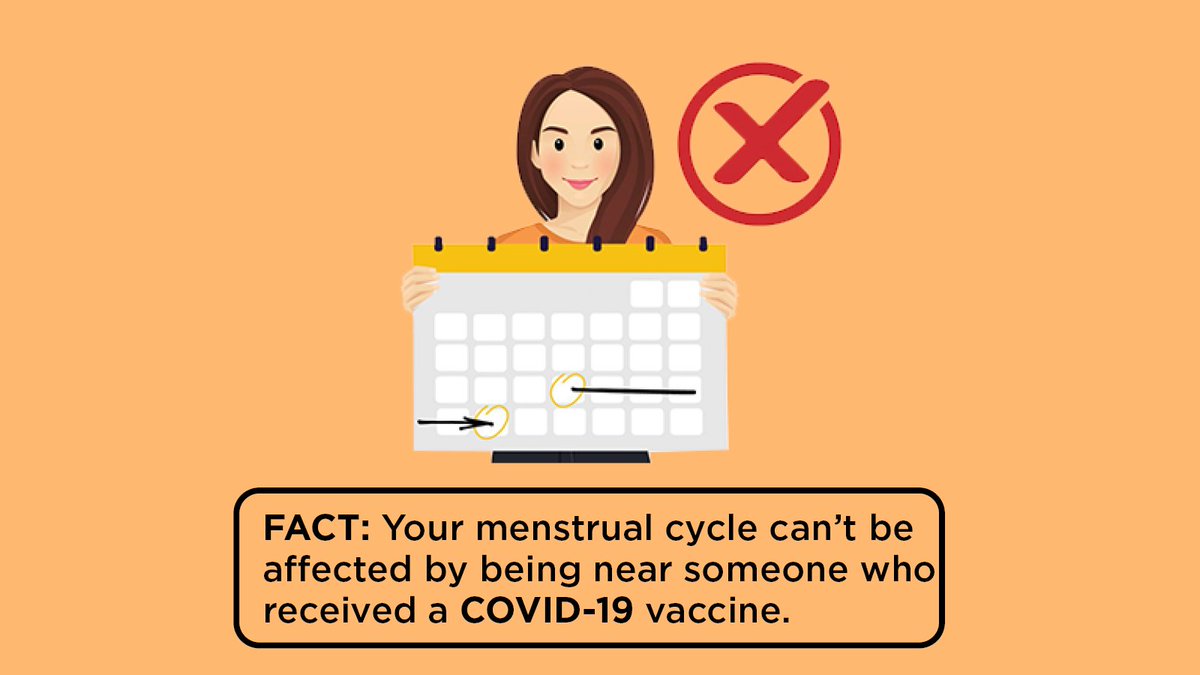
FACT: You should get vaccinated against #COVID19 if you’re trying to get pregnant now or in the future. No evidence to date shows that any vaccines, including COVID-19 vaccines, can cause fertility problems in men or women.
More: bit.ly/3iTYwaa.
More: bit.ly/3iTYwaa.
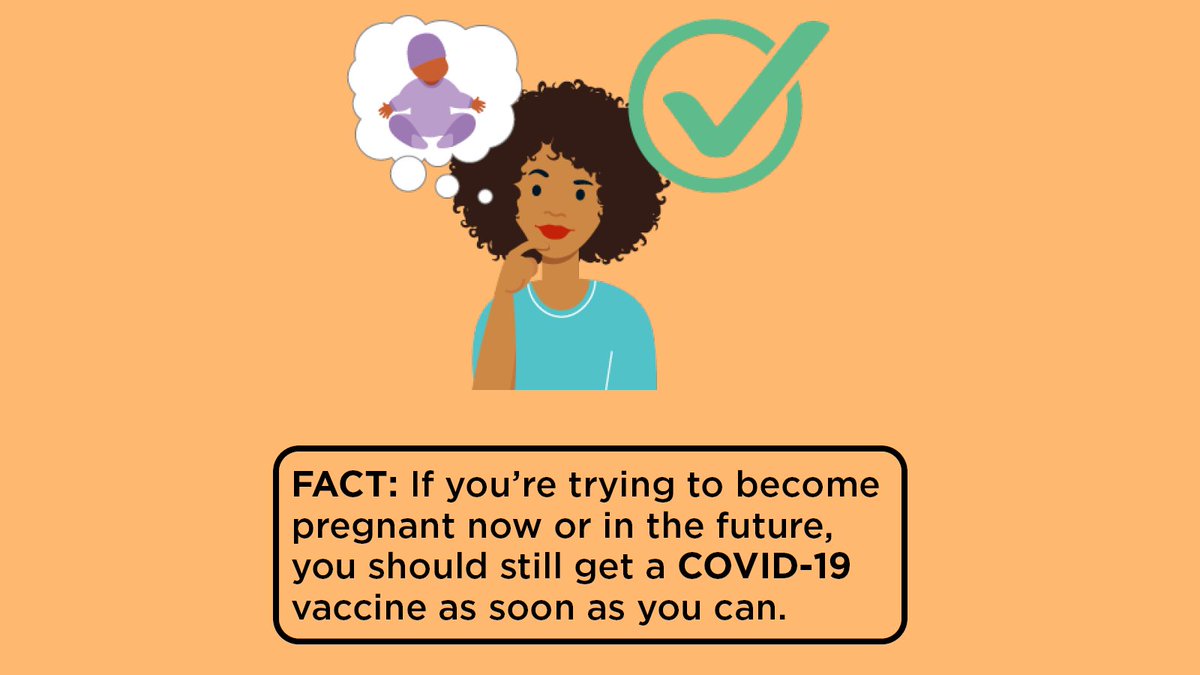
• • •
Missing some Tweet in this thread? You can try to
force a refresh





